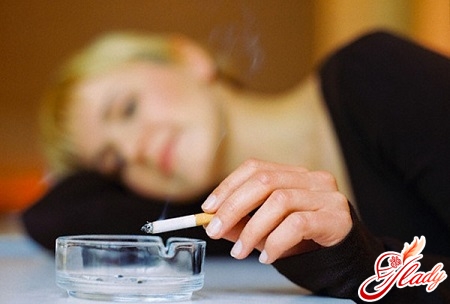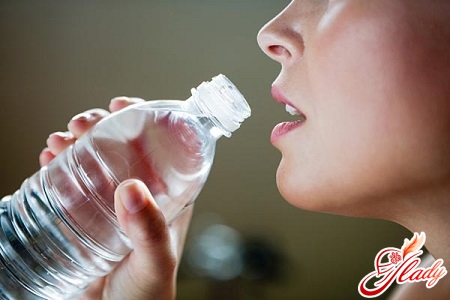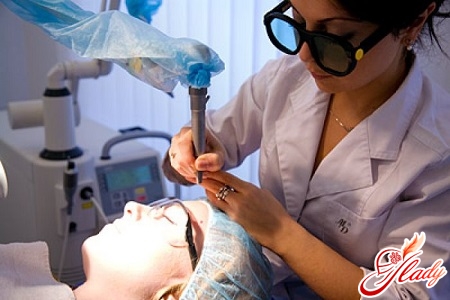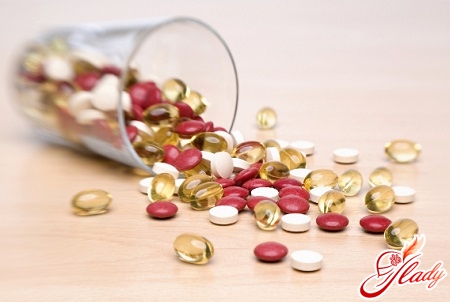
Hormones, hormones… A woman’s life begins withthem and ends with them. Sexual development begins in utero, and already from the 15th week it is possible to determine the sex of the future child. And then the development of women is divided into several periods. Each of them has its own characteristics. None of them can be called simple. But the physiological stage of menopause is the most difficult.
Climax - general information
The question arises:when does menopause occur, is treatment necessary? The climacteric period (menopause) can last quite a long time (up to 10 years). It begins in most cases after 40 years. But it can be early or late (35-55). Hormonal changes in a woman's body lead to a gradual fading of reproductive functions. This long period is divided into 2 phases. Its first phase - premenopause - is characterized by the fact that the duration of menstruation and its regularity begin to change. Discharge can become either very scanty or very abundant, and their rhythm is inconsistent. Postmenopause - the second phase of menopause. At this time, the hormonal activity of the ovaries fades, menstruation completely stops and a period of physiological rest begins for the woman's reproductive system. Menopause is an integral stage of aging, which each woman experiences in her own way. Some people do not experience any particular changes in their bodies or minds, while others experience a whole complex of symptoms called climacteric syndrome.
Climax: Causes and Consequences
From about age 35, the amount of estrogen(a hormone that is needed for the onset of menstruation and pregnancy) and progesterone begins to decrease constantly. And it decreases until menstruation completely stops and the woman's reproductive function fades away. Since sex hormones take an active part in the regulation of various organs and systems of the body, a temporary disorganization of the body's functions occurs, which must adapt to new living conditions. Estrogen affects the functioning of the heart, genitourinary system, thermoregulation system, the condition of bones, skin and hair. With a hormone deficiency, "breakdowns" appear, the severity of which depends on the presence of stress factors, the presence of acute or chronic diseases, sexual or psychoemotional disorders. Female genital organs undergo significant structural changes up to atrophy. And there is a need for treatment. The ovaries gradually reduce the synthesis of progesterone and estrogen. Their weight decreases from 6-7 g to 4 g. Their follicular apparatus gradually dies, and the vessels are replaced by connective tissue. The shape and weight of the uterus also change significantly due to atrophic processes. Its walls become denser and thinner. Muscle fibers are replaced by fibrous tissue. The fallopian tubes become narrower, shorter and thinner. And the cilia on their free edge completely atrophy. The vaginal mucosa completely loses elasticity. The synthesis of lactic acid and glycogen decreases, which leads to a change in the pH of the vaginal environment from acidic to alkaline or neutral, which promotes the proliferation of pathological microorganisms. This often leads to the development of atrophic colpitis and its treatment.
Menopause Symptoms
Regularity of the menstrual cycleclimacteric syndrome begins to change even before menopause. Its duration becomes longer or shorter compared to the previous period. Quite often at this time, dysfunctional uterine bleeding may occur, the cause of which is a violation of the synthesis of the corpus luteum and follicles. Bleeding of this kind can be of varying intensity and duration. Sometimes so strong that they need to be urgently treated to avoid risk to the woman's life. And bloody discharge can also appear in the middle of the cycle. A decrease in estrogen levels causes vaginal dryness. Its walls lose elasticity, become thinner and begin to secrete less and less secretion. An inelastic and dry vagina can cause a feeling of discomfort during intercourse and in everyday life. This problem can be avoided by treatment with various suppositories and water-soluble lubricants. The loss of sex hormones affects the muscle tone of the genitourinary tract. In some cases, its decrease is so significant that urinary incontinence develops, which necessitates the use of urological pads. Changeable mood, poor sleep, irritability, fatigue, depression, sweating, accelerated skin aging, muscle and joint pain - these are the companions of menopause, the appearance of which depends on the reduced level of sex hormones. But the earliest and most characteristic symptom that allows us to talk about the presence of climacteric syndrome and its severity are hot flashes. 75-85% of the female population have experienced what hot flashes are.
Menopause: Tides
Hot flashes begin to appear 1-2 years beforemenopause. And the duration of this period can be from six months to 15 years. Prolonged and severe hot flashes, requiring special treatment for menopause, occur in women with artificial (removal of the ovaries) or early menopause. The occurrence of hot flashes is associated with the fact that through the endocrine ligament hypothalamus-pituitary gland, the woman's body tries to forcibly eliminate the lack of estrogen, forcing the ovaries to produce sex hormones. Estrogens directly affect the body's thermoregulatory processes. With a lack of hormone, false signals about overheating are sent to the hypothalamus. And then the mechanisms of protection and discharge of excess heat are activated: the heartbeat quickens, blood vessels expand, profuse sweating begins. The activation of these protective mechanisms is perceived by the woman as a sudden sensation of heat. It appears in the chest and like a wave rolls over the neck, head, arms. Most often, these sensations cover the upper part of the body. But sometimes hot flashes can completely absorb the entire body. The duration of each hot flash is from 10 seconds to tens of minutes (on average 3-4 minutes). Their frequency also varies. The number of hot flashes per day determines the severity of the climacteric syndrome:
- 1 degree - mild: up to 10 hot flashes without impairment of performance;
- 2nd degree - average: 10-20 hot flashes with increased heart rate, pain in the heart area, headaches, dizziness, decreased performance;
- 3rd degree - severe: more than 20.In this case, attacks of weakness, nausea, increased and uneven heartbeat, sharp fluctuations in blood pressure, increased temperature, loss of working capacity, followed by profuse cold sweat and chills occur. At this degree of severity of the syndrome, treatment of menopause is a necessity.
Hot flashes can occur even during sleep.A woman may not notice a hot flash, but the feeling of cold, caused by cold and wet sweat, makes her wake up. Frequent attacks during sleep lead to sleep disturbance.
Tides: trigger
Very often, hot flashes do not start out of nowhere. The following factors contribute to their appearance:
- heat sources - hair dryers, irons, fireplaces, stoves;
- high ambient temperature: hot room, sauna, shower, hot on the street;
- sharp and hot food;
- hot drinks;
- excessive consumption of sugar, coffee, alcohol;
- smoking;
- neuropsychic states (stress, anxiety).
Any woman can learn to controlyour hot flashes. It is necessary to analyze the attacks, determine the main reasons that contribute to their occurrence, and try to eliminate the occurrence of these reasons. The questions, the answers to which will help a woman, are the following:
Tides: recommendations
These general recommendations will not eliminate hot flashes themselves. But they will help reduce their frequency and severity.

Tides and stress
The main factor that provokes the appearance of a tide— stress. It is very difficult to maintain calm in the rhythm of modern life. Conflicts at work and at home, important meetings, public speeches, reports, being late… This list can go on for a long time. And even knowing that all these reasons contribute to the appearance of hot flashes, you will not be able to avoid them in real life. Therefore, it is important to try to learn how to control hot flashes even in critical situations. To do this:
- Carry water in a small bottle. A couple of sips of cold water will stop appearance and prevent the development of an attack.
- Reducing the severity of the tide will help blown yourself with air. Carry a fan with you. Find somewhere near the place with a fan or air conditioner.
- Try not to be late for meetings, and this is notwill cause you too much excitement. If such a situation has arisen, better call back and warn about being late. Think about the possibility of communication with the person waiting for you in advance. Do not hurry.
- Diaphragmatic breathing calms the nervoussystem. If you feel the approaching tide, take a few slow, deep breaths with your eyes closed. Sing at home, in nature, at work, preferably in full voice. It also develops deep breathing.
- If the tide caught you during the report,speech, report, important conversation, try not to think about the tide. It is better to focus on the topic. After all, the fact that at the moment you have a tide no one and does not know except you. Keep confidence, and it will give strength.
Tides: treatment
The need to use menopause treatmentdrug therapy occurs when you have followed all the recommendations for non-drug reduction of the frequency and strength of hot flashes, but they were not enough. Recommendations on how to treat menopause should only be given to you by a doctor, taking into account your condition. The following drugs are used in the treatment of menopause:
- Lowering the pressure. After all, the tides are often accompanied by a sharp increase in blood pressure. It is important to remember that only a doctor can prescribe such drugs, change their dosage in the treatment of menopause.
- Soft sedatives reduce the lability of the nervous system, which lowers the frequency of seizures.
- Antidepressants are prescribed by a doctor for the treatment of menopause, which is accompanied by depressive disorders.
- Preparations of hormone replacement therapy contain estrogens, which make up for their deficiency in the body. Scheme of application and the drugs themselves are selected individually.
All these drugs can be used in the treatment of menopause only after mandatory consultation with the attending physician.









